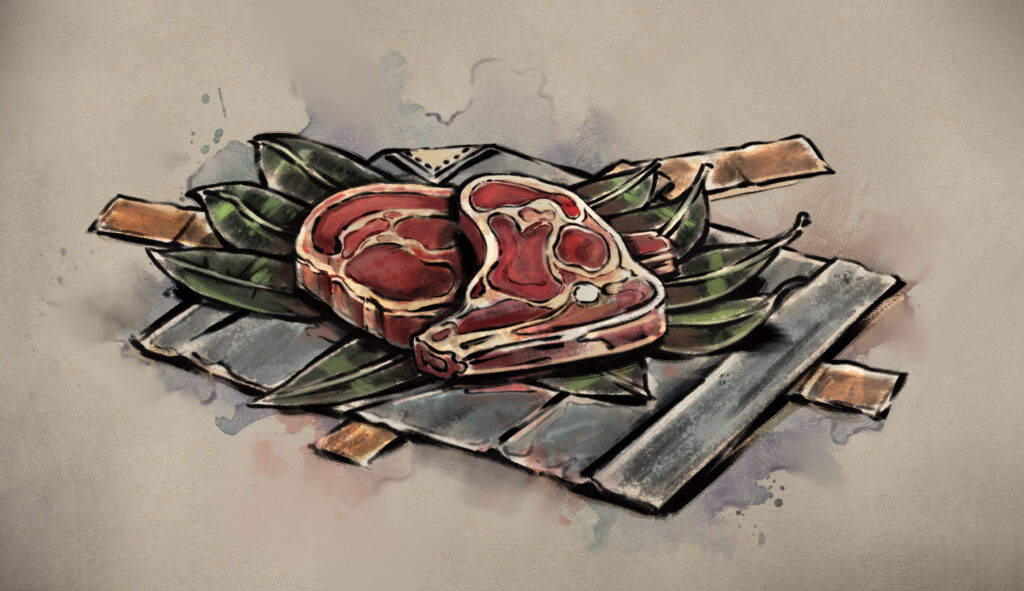
For centuries, Japan upheld a strict taboo against consuming meat, particularly beef, driven by both religious and practical considerations. Guided by Buddhist principles of respect for life and the avoidance of waste, as well as Shinto beliefs surrounding purity related to blood and death, the Japanese largely avoided meat consumption for over 12 centuries.
It was in 675 AD that Emperor Tenmu imposed a ban on the consumption of most animals, believing in a compassion for all living beings. On the banned list two animals were conveniently left unmentioned, those being deer and wild boar. This is believed to be because they were both the most commonly eaten meat in Japan, and were also used as offerings at certain shrines.
Dealing with the dead or anything to do with flesh was looked down upon, but it was a role that needed to be filled within Japanese society. This job was given to a caste of people called the Eta, who were seen as unclean and impure for working closely with corpses, executioners, and tanners. Since they were seen as non-human already, the Eta were mostly free to eat meat without any repercussions. Over time the Eta and their families became known collectively as the Burakumin class, which while technically dissolved in the modern era, their descendants still face prejudice due to their heritage.
The restrictions on animal-eating continued throughout the decades, even incurring some additional rules and changes, such as chicken eggs becoming taboo in the 17th century. It wasn’t until western missionaries began to arrive in Japan that the overall treatment of meat began to shift. As Christianity began to grow in popularity, so did the consumption of animals. It wasn’t until Toyotomi Hideyoshi began to re-apply pressure on the bans that this loosening of beliefs was largely halted. However, it is believed that many still ate meat in secret.
It wasn’t until the Meiji Restoration in 1868 that meat-eating started to become accepted in Japanese society. The Meiji government lifted the ban in 1872 with the hopes that it would help to both increase their military power and bring further prosperity to the country.
In Tale of Ronin, the imposed ban on meat-eating has been in place for hundreds of years. As a ronin trying to survive on the road, players may face starvation and have to make the tough decision between maintaining their honor or filling their stomach.